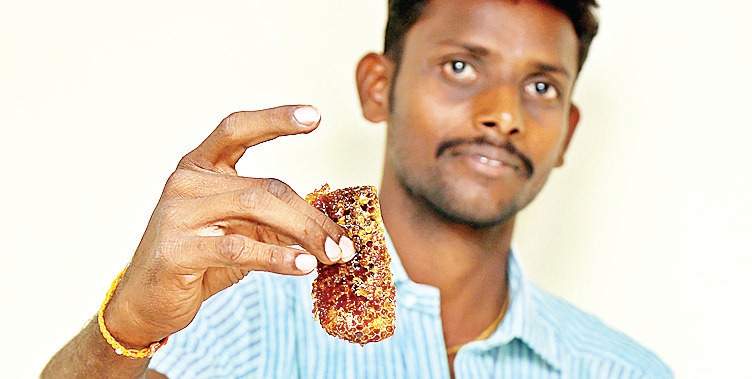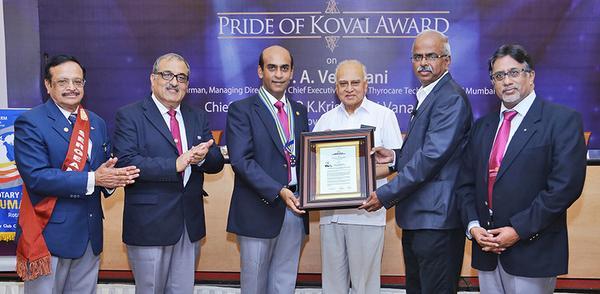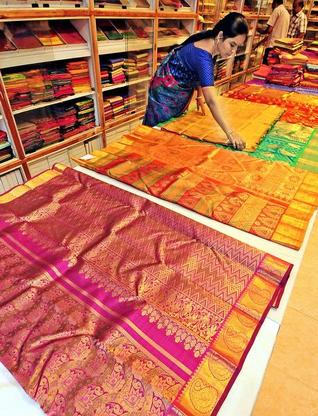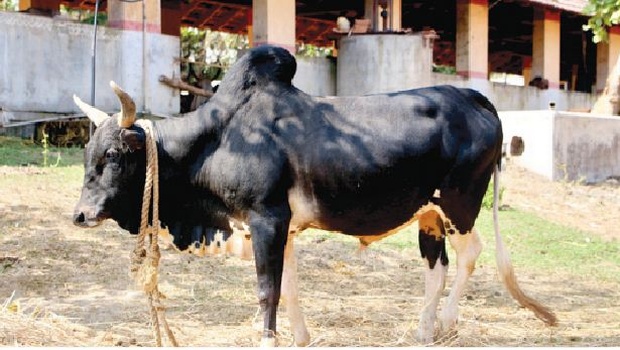This year, Chennai has seen two staunchly-local five-star hotels spring up. ELIZABETH MATHEW meets the men behind the ambitious projects
Feathers
The Radha Hotels group started with a small 27-bedroom hotel in Neyveli, built by S. Radhakrishnan. While most people tend to be nostalgic about firsts, his son has a rather humorous take. “That is where we learned how not to build a hotel,” jokes R. Srinivasan, the man who took his father’s vision and expanded it. From a budget hotel to the three-star Radha Regent, to the recently-opened five-star Feathers, Srinivasan has come a long way.
After opening Radha Regent (Arumbakkam) in 1997, he opened a couple of three and four-star hotels in Bangalore. Their first hotel’s claim to fame is the first pub in Chennai — Geoffrey’s. At a time when Chennai was more Madras, still conservative and completely new to pub culture, it was a trendsetter and still has a faithful following. Then, it was time to raise the bar. “Building a hotel is not for the faint-hearted,” says Srinivasan, “and you can’t do it with a chequebook alone.” He believes he was able to put together Feathers only because of his experience.
The unusual name of the hotel comes from a long search. The fact that the name doesn’t sound particularly local works in its favour, believes Srinivasan “It also conveys a feeling of cosiness, warmth, softness — something luxury-associated,” he opines.
It’s also an effort to make it different from the other hotels in their portfolio. “We didn’t want to go for an international tie-up, since it takes away 12-15 per cent of the revenue,” he says, adding that Chennai attracts more business travellers, who visit frequently for short periods of time and usually opt for a convenient location over a prominent brand name.
While many would consider a hotel this far from the city a difficult sell, Srinivasan can see only positives. “If I had opened this hotel in the city, I would be a very worried man.”
With the manufacturing corridor nearby, Oragadam and Sri City SEZs just 45 km away and two major hospitals in the vicinity, Srinivasan believes the potential is endless.
While most hotel chains across India are primarily other businesses that have diversified, very few are exclusively in the hospitality industry. Radha Hotels is one of them. Srinivasan says, “It is very difficult to be a pure hotelier because the gestation period is very long. It is very capital-intensive, and when you grow, there is the risk of over-investment and debt.” A man who chooses his words as carefully as his investments, he explains how he spent around Rs. 90 lakh per room, when similar luxury hotels spend upwards of Rs 1 to 2 crore. “I wasn’t looking to build the Taj Mahal; that has already been built. I wanted a hotel where the returns are commensurate with the investment.”
All this talk of balance sheets and bank loans aside, the fact remains that Srinivasan wanted Feathers to be a five-star hotel. So, despite the seemingly straightforward decor — neutral beiges, square lines, no bling — there is an element of luxury in the space, whether it’s from the expansive lobbies or the aesthetic carpeting.
Value for money and luxury aren’t words you would usually hear in the same sentence, but Srinivasan suggests that at Feathers, he’s succeeded in blending the two successfully.
Dining options open at the moment at Feathers include Waterside, an all-day dining space with live kitchens and indoor and alfresco options, and Skyloft, a lounge-cum-rooftop restaurant, which Srinivasan hopes will be the city’s next Geoffrey’s. With a newly-acquired liquor licence for domestic spirits, Vapor, their upscale bar, hopes to bring both serious drinkers and DJ enthusiasts together. An Indian restaurant called Umami is also in the works.
Turyaa
Ranjit Pratap’s tryst with building a hotel started in 2011, when, encouraged by a buoyant economy, he started planning to build a four star property with 147 rooms in an atrium style. “Since it was my first hotel, I went for the best,” he says. “Italian marble, platinum LEED certification… When you want to have the best, there’s no end to your desire!”
Towards the end of 2011, as his dream hotel was under construction, another property of his was in a legal tangle with the JV partner. When the case was settled in 2012, Pratap leveraged his position and exercised the option to buy him out. “And the trouble started there,” he recounts. The economy started to drop, new hotels started coming into the city, and they started to develop cold feet as the predicted average room rate fell from Rs 6500 to Rs 4500.
“The hotel project was stuck, because we thought we could build just the shell, do a 100 rooms now and the rest later. But things started cascading, and we decided to disinvest, as it was part of the activity of my group, Rayala. To segregate it and sell it was a problem, and it was also the worst time to sell, in 2014. At that time, fortunately, Aitken Spence came in and offered to buy a major stake of the property. And that was a God-send,” he explains, ending with a sigh of relief.
A 140-year-old company, Aitken Spence has over 24 resorts to its name, and Turyaa in Chennai is the first city hotel in its portfolio. The takeover was amicable, with both Pratap and Aitken Spence seeing eye to eye about the design concept and not needing too many changes. And so Turyaa on Old Mahabalipuram Road was born. “They maintained my vision, and even the cutlery here is what I chose,” adds Pratap.
The hotel was set to open in 2014, but ended up having a soft launch only in November 2015, and had a long wait to get a liquor licence as well. Though it has been up and running,and popular in its immediate vicinity, the hotel is yet to make an impact across the city. “One advantage is that the hotel is at the very beginning of the IT corridor and you don’t need to cross the toll; it is also just four kilometres from Adyar,” says Pratap.
Now, with his office right next door, he often drops in to check on the property out of a godfatherly feeling, and has developed a great rapport with Arun Raj, the present general manager. “Whoever is nurturing it now, the hotel is still my baby, and I have to be the proudest person,” says Pratap.
With about four million sq ft of IT parks around it, software companies provide great business for the hotel, especially for the restaurants. Proximity to business hubs like Siruseri, and close connectivity to the airport are an added bonus. But there are downsides to these as well. “Weekends are generally emptier since this isn’t a leisure property,” says Arun.
Having applied for a five star deluxe rating, the hotel is waiting for the classification, which usually takes six months from getting the bar licence. With everything in place, the rating is expected around December.
After his experience with Turyaa, Pratap has shelved any other plans to do with hospitality, and has decided to leave it to the experts. A collector of classic cars, Pratap’s original dream was a combination of his two loves — a hotel built around a car theme that would let him showcase his car collection as well. While he takes credit for the designing of the hotel, the terrace poolside space and more, he does admit that all credit goes to the management for the smooth running, essential for a good property.
The hotel is named after a Sanskrit word for musical note, as well as the third stage of enlightenment that cannot be seen or tasted but only experienced. All the restaurants have Sanskrit names as well — Svar, Samasa and Mista — except for the Chinese restaurant, Dao. They also have an iPad-themed bar named Twist and a poolside rooftop restaurant, with cleverly placed hedges that obscure the traffic-laden roads, and focus on the expanse of blue sky.
source: http://www.thehindu.com / The Hindu / Home> Features> Metroplus / by Elizabeth Mather / Chennai – November 01st, 2016



